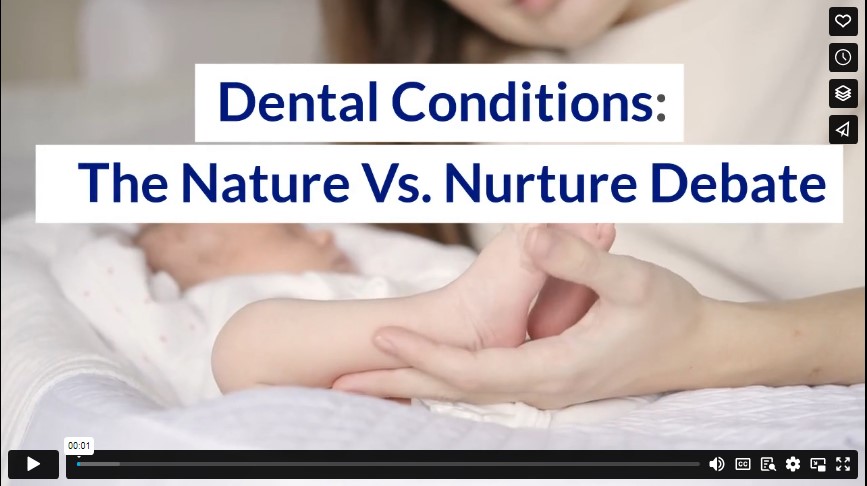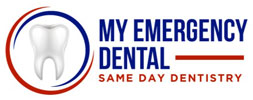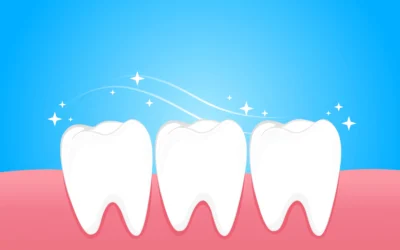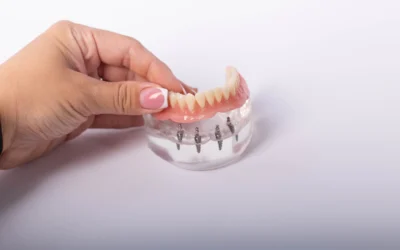Bringing home a new baby is exciting. He has his dad’s nose, mom’s eyes, and grandpa’s smile. We pick up many things from our parents and grandparents, but the combination always surprises us. For some, genetics causes problems for their little ones, like a cleft palate. It’s no one’s fault. When sperm meets egg, the child gets bits and pieces from both sides of the family. It’s a genetic grab bag over which we have no control.
Does this mean we can blame all of our dental woes on our ancestors? Not quite. Often, our behavior and choices make the biggest impact on our smile. So, what kinds of conditions are genetic, and what can we control?
Genetics
Genetics plays an undeniable role in dental health. When we are born, we have a predetermined jaw shape. Our palate, jaw, teeth, and tongue are formed and will grow with us in a predetermined manner. Here are some of the conditions you might see caused by genetics.
- Jaw-Related Disorders: Your genetics decide the shape of your face, including the shape and size of your jaw, how it’s hinged, and if it lines up with the skull well or not. Tiny imperfections in the jaw cause overbites or underbites, affecting jaw strength and how we talk and chew.A misaligned jaw can cause unbalanced musculature and uneven pressure when you chew. It can be painful and, if left untreated, cause Temporomandibular Jaw Disorder (TMJ). TMJ can cause jaw pain, headaches, and uneven wear on teeth. In extreme cases, the jaw can lock, and the muscles cramp, requiring medical intervention.
- Tooth Misalignments: You are born with a certain number of teeth. Do you have all your teeth? Do you have more teeth than the average person? Will adult teeth line up as they push baby teeth out? The jaw size and shape and where the teeth grow will decide if your smile will be straight or if you will need braces.Will the jaw have enough room for the teeth, or will wisdom teeth (the back molars that emerge last) crowd other teeth until they overlap? Will they get stuck? Will your dentist need to perform a tooth extraction? The answers to all these questions are heavily influenced by your genetics.
- Tooth Enamel: The hard outer layer of the tooth is called enamel or dentin. Some people develop strong dentin, while others may not develop the outer layer at all. The enamel may mineralize at an average rate or leave the tooth vulnerable to sensitivity, damage, and decay.
- Oral Cancer: Like other forms of cancer, one can inherit genetic mutations that create cancerous cells. We also inherit immune systems that repair the damage, destroying harmful cells. Some immune systems don’t operate fast enough to eliminate all the bad cells as quickly as they duplicate, which is when they grow problematic.
It is important to share your family medical history with your preventative care dentist so they can watch for genetic conditions that may affect your dental health.
Lifestyle
Not all dental issues can be blamed on your genetics, however. Our choices can have a dramatic impact on our oral health.
- Diet: What we put into our bodies will determine how well they function. For example, coffee, tea, and cigarettes can stain enamel over time. Over time, these substances create a yellowed smile. An Atlanta-area cosmetic dentist can whiten your teeth to a more natural hue.Sugar also plays a significant role in dental health. Sugar mixes with your saliva and feeds bad bacteria. This process produces acids that eat your tooth enamel. The acid breaks past the outer enamel layer and pools in ever-deepening holes called cavities. The teeth weaken, making them more susceptible to damage.
- Oversharing: Sharing foods and drinks transfer bacteria from one mouth to another. Little ones may not have the immune system yet to handle the bacteria in an adult’s mouth. Bad bacteria colonize and increase the risk of gingivitis and cavities.
- Poor Oral Hygiene: All the steller genetics in the world won’t make up for poor oral care. It is the single best way you can take control of your mouth health.
- Drink water often to rinse sugar and acids away from your teeth.
- Floss at least once daily to remove food, plaque, and debris between your teeth and the gum line.
- Use a tongue scraper to exfoliate the tongue, removing dead cells, excess bacteria, and food debris that make it hard to taste and give you bad breath.
- Brush teeth gently but thoroughly twice daily. Plaque takes about twelve hours to harden against your teeth. By brushing twice daily, you can eliminate plaque before it becomes an issue. Brush along the gum line, especially where bacteria can collect and break down gum tissue.
- Swish mouthwash around for 30 seconds to get anything left behind. A fluoride rinse helps remineralize weak spots in your teeth, but be careful not to swallow and wait half an hour before eating or drinking anything so it has time to adhere.
Your Future is in Your Hands
While you may be able to blame your great grandpa for your receding hairline or great grandma for your funny baby toe, the fate of your dental health is your own. Get to know your family’s oral health history and see a dentist regularly to check for signs of developing problems. They can help you develop a personalized oral care plan to meet your unique needs.
Video




